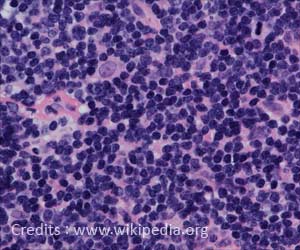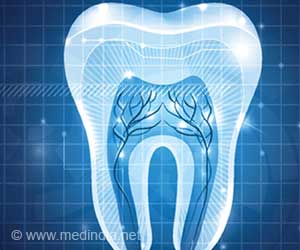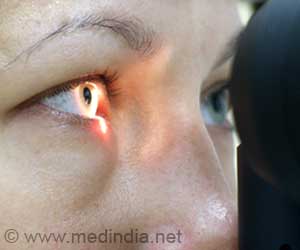Worried about cancer risks lurking in your home? Discover some surprising culprits and safeguard your health now!
- Everyday household items and habits, such as plastic bottles and beauty products, may harbor carcinogens, raising cancer risks
- Modern conveniences like non-stick cookware and plastic utensils can also expose individuals to harmful chemicals linked to cancer development
- The popularity of e-cigarettes and flavored hookahs among youth poses additional risks, as they contain chemicals known to increase the likelihood of cancer and other health issues
Rising Incidence of Cancer
Recent warnings from the World Health Organization's cancer agency, the International Agency for Research on Cancer (IARC), paint a grim picture of the future. With new cancer diagnoses projected to surge by 77% by 2050, surpassing 35 million cases annually, urgent action is imperative (1✔ ✔Trusted SourceGlobal cancer burden growing, amidst mounting need for services
Go to source). Lifestyle and environmental factors are primary contributors to this alarming trend, with tobacco use, excessive alcohol consumption, obesity, and air pollution identified as major culprits (2✔ ✔Trusted Source
The Development and Causes of Cancer
Go to source). However, the insidious presence of carcinogens in everyday items adds another layer of concern.
Unsuspecting Cancer Threats in Household Staples
Plastic bottles, commonly used for drinking water, may harbor microplastics (3✔ ✔Trusted SourceMicro(nano)plastics pollution and human health: How plastics can induce carcinogenesis to humans?
Go to source), while the habit of steeping tea in plastic bags or using white-colored mayonnaise in food preparation can introduce harmful chemicals like epichlorohydrin, elevating the risk of cancer (4✔ ✔Trusted Source
Dietary habits contributing to breast cancer risk among Iranian women
Go to source).
Did You Know?
The average household contains over 50 everyday items that may harbor carcinogens, contributing to the risk of cancer.
PTFE-coated non-stick cookware and toxicity concerns: a perspective
Go to source), potentially fueling cancer development.
In the realm of personal care products, nail polish and removers contain hazardous chemicals such as toluene, formaldehyde, and acetone, recognized carcinogens (6✔ ✔Trusted Source
DNA damage and somatic mutations in mammalian cells after irradiation with a nail polish dryer
Go to source). Similarly, hair products infused with formaldehyde and formaldehyde-releasing agents pose significant cancer risks, particularly those used for hair straightening (7✔ ✔Trusted Source
Use of Straighteners and Other Hair Products and Incident Uterine Cancer
Go to source). It is important to choose beauty products to minimize exposure to carcinogens and safeguard against potential health complications.
Urgent Need to Curb Use of E-Cigarette and Hookah
Meanwhile, the rising popularity of e-cigarettes among youth poses a new set of challenges. Chemicals found in e-cigarettes, including nicotine, formaldehyde, and heavy metals, significantly increase the risk of lung cancer and other respiratory ailments (8✔ ✔Trusted SourceCancer Prevalence in E-Cigarette Users: A Retrospective Cross-Sectional NHANES Study
Go to source). Similarly, flavored hookahs, favored by many young adults, contain a cocktail of harmful chemicals like diacetyl, carbon monoxide, and cadmium, heightening the risk of cancer and other health issues (9✔ ✔Trusted Source
A Review of the Pulmonary and Health Impacts of Hookah Use
Go to source).
There is an urgent need to address these emerging trends to curb the rising tide of cancer cases, particularly among the younger population. In conclusion, heightened awareness of everyday carcinogenic exposures, coupled with proactive measures to minimize risks, is paramount in the fight against cancer. By adopting healthier lifestyle choices and advocating for safer consumer products, individuals can contribute to reducing cancer incidence and improving overall well-being.
References:
- Global cancer burden growing, amidst mounting need for services - (https://www.who.int/news/item/01-02-2024-global-cancer-burden-growing--amidst-mounting-need-for-services)
- The Development and Causes of Cancer - (https://www.ncbi.nlm.nih.gov/books/NBK9963/)
- Micro(nano)plastics pollution and human health: How plastics can induce carcinogenesis to humans? - (https://pubmed.ncbi.nlm.nih.gov/35301996/)
- Dietary habits contributing to breast cancer risk among Iranian women - (https://pubmed.ncbi.nlm.nih.gov/25422253/)
- PTFE-coated non-stick cookware and toxicity concerns: a perspective - (https://pubmed.ncbi.nlm.nih.gov/28913736/)
- DNA damage and somatic mutations in mammalian cells after irradiation with a nail polish dryer - (https://pubmed.ncbi.nlm.nih.gov/36650165/)
- Use of Straighteners and Other Hair Products and Incident Uterine Cancer - (https://pubmed.ncbi.nlm.nih.gov/36245087/)
- Cancer Prevalence in E-Cigarette Users: A Retrospective Cross-Sectional NHANES Study - (https://pubmed.ncbi.nlm.nih.gov/35317331/)
- A Review of the Pulmonary and Health Impacts of Hookah Use - (https://pubmed.ncbi.nlm.nih.gov/31091965/)
Source-Medindia















